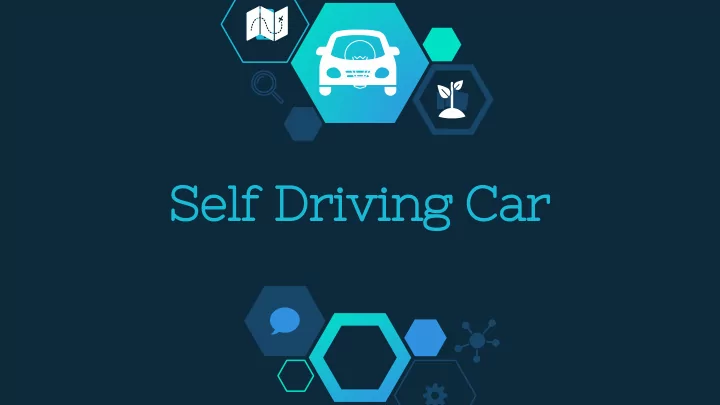

Self Driving Car
Self Driving Cars Auto Breaking Fully Lane Guidance Autonomous Auto Parking self driving Cruise Control cars
Value Proposition Decrease 90% death Major Emission Commute Times reduction Reduction Sources: The Economist, TechCrunch, Forbes
$124,000,000,000 Wasted from sitting in traffic 4,094,470 Preventable injuries and deaths 15,000 Kilotons of CO 2 Fumes Sources: The Economist, TechCrunch, Forbes
Advanced Sensors & Reaction Time
Increase in usable land Decrease in cost of land ◇ Increase living options ◇
Market Segmentation Shared Individuals Fleets Early Adopters ◇ ◇ Taxi Services Elderly/Handicapped ◇ ◇ Public transportation Parents ◇ ◇
Source:Grand View Research
Regulatory Ethical Issues International
Regulatory Country-wide State-wide Source: National Highway Traffic Safety Administration, United States Department of Transportation
Regulatory Future Mandatory Optional Self-Driving Self-Driving Cars Cars
Competitive Analysis
Competitive Analysis Audi - Jack Ford BMW - iNext 2021 2021 2021 ◇ ◇ ◇ No human Human is present Human is present ◇ ◇ ◇ Ride-sharing market ◇ Volvo & Microsoft Lyft & GM Strength: partnership Taxi service ◇ Strength: partnership
Tesla - The Tesla Network Absence of Lidar ◇ Ride-share market ◇ Strength: Identifying lanes Weakness: city-driving Waiting on regulatory factors ◇
Google - Waymo 2020 ◇ No steering wheel, pedals or human ◇ Over 2 million miles of test-driving ◇ Strength: navigation abilities Strength: handling weather-related obstacles Weakness: city-driving
Uber Driver in car ◇ Pilot programs in effect ◇ Weakness: city-driving Weakness: bridges Strength: Command over ride-hailing market
Important forms of IP Trade Patent Secrets
Litigation # of lawsuits Waymo vs Uber
Source: IP Watchdog
IP Comparison
Value Inflection Points Practical Technology Implementation Full Driver Reliance Regulation ❏ Level 0 Individual car functionality Level 1 ❏ Level 2 A functional system of ❏ self-driving cars Level 3 Level 4 Full Car Reliance
Go-To-Market Strategy Public Shared Private Transport Use Use - Larger market - Public access Pros - Declining car - Upfront profit - Subsidized ownership - Tech readiness - Upfront costs Cons - Longest time to - Revenue over - Smaller Initial market time Market Funding/ Government / public Grant/VC/Private Grant/VC/Private funds, cities rideshare companies car manufacturers Partners
MARKET ATTRACTIVENESS 55% Of respondents in a survey done by BCG said they would consider buying an autonomous vehicle 44% Of the 55% said they would consider buying a fully autonomous vehicle Demonstrates a significant potential market for AV in shared/private sector Source:BCG
AV revolution opens doors for new entrants Sensor and processor suppliers ◇ Tech companies ◇ Connectivity and cloud based data services ◇ New collaborations ◇ Personal vehicle ownership less necessary ◇
Entrance and Expansion Volume US Premium US Global market market Market Source: BCG, Ford
US MARKET 25% The projected percentage of partially and fully autonomous vehicle sales of all new vehicles sales 2025 Year for this projection $10,000 More for AV model than the same model without autonomous features--but this will decrease Source: BCG
Global Market Market Size = $77 Billion ◇ Fastest Adopters = Western Europe and Japan ◇ Sources:BCG
Conclusion Work for the Goliaths Complementary Services Startups
Recommend
More recommend